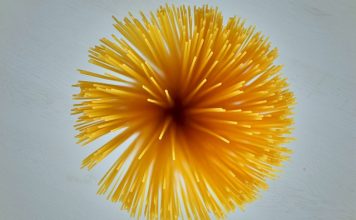Case Study: Dolutegravir adult formulations
In 2014, MPP signed voluntary licences with ViiV that cover paediatric and adult formulations of dolutegravir (DTG), a treatment for HIV. The geographical scope of the paediatric licence includes 29 countries more than the scope for the adult one, which includes 92 countries. The licence for adult formulations also provide rights over abacavir (ABC), which is another HIV medicine useful to use in combination with DTG. Many generic companies interested in selling generic DTG in countries listed in the licences have signed the agreements through the MPP. More information on these companies and the timeline for the development of these generic formulations is available on the MPP website. This case study describes how import and use of generic DTG is possible, depending on the patents and licence status of countries, focusing on adult formulations of DTG. Two types of patents have been filed by ViiV, as disclosed in the DTG/ABC licence for adult formulations, one that covers DTG compound and another one that covers DTG combinations, in particular with ABC and lamivudine (3TC).
Countries included in the licence territory
Most countries included in the DTG licence (82 of them) can freely import generic DTG from MPP licensees, for supply in the public and/or private sector, whether or not any patent is granted on DTG or DTG combinations by their patent office, because these countries are included in the licence territory. A smaller group of ten countries included in the licence, i.e. Armenia, Egypt, India, Indonesia, Moldova, Morocco, Philippines, Turkmenistan, Ukraine and Vietnam, can also freely import or procure generic DTG from MPP licensees, whether or not patents are granted, but solely for use in the public sector (as specified in the licence). As per the terms of the licence, all countries included in the licence territory are free to use generic DTG in combination with generic ABC, even if some patents on abacavir remain in force in their territory. For instance, Ukraine can import generic DTG alone or in combination with ABC (for sales in the public sector), even though Ukrainian patents have been granted on DTG compound, ABC hemisulfate salt and DTG in combination with ABC and 3TC. Importantly, the MPP licence also ensures registration of generic DTG and of ABC/DTG/3TC 600/50/300 mg is possible by Ukraine regulatory authority, even though the latter combination is protected by test data exclusivity until 2020. This is as a result of a standard clause in MPP agreements which include a data exclusivity waiver for countries included in the licence. Without such a clause the registration of generic products produced by the MPP licensees could face registration hurdles in countries which grant test data exclusivity, and still not be made available (see also this article for more information on data exclusivity).
Countries excluded from the licence territory
Countries excluded from the licence have different options depending on the patent status of DTG, ABC and DTG combinations in their territory.
- A first group of countries – such as Argentina, Costa Rica, Ecuador, Iran, Jamaica, Mongolia or Thailand – can import generic DTG 50mg from MPP licensees even though they are not included in the territory of the licence because the compound patent on DTG was never filed in these countries. See MedsPaL for current patent status information. In countries which have granted test data exclusivity, such as Chile or Peru, licensees will however have to wait for the expiration of the exclusivity to launch their generic on the market in the country.
- A second group of countries – such as Algeria, Belarus, China, Colombia, Kazakhstan, Russia or Turkey – have granted the patent on the DTG compound and are not included in the territory of the MPP licence for adult formulations. However, these countries can import generic versions of DTG 50mg if they issue a compulsory licence or a government use licence for that purpose. Export by MPP licensees to these countries is allowed because import under a compulsory licence would not constitute patent infringement under the MPP licence. In case data exclusivity has been granted on DTG 50mg – such as in Colombia or Russia – the national legislation determines if data exclusivity applies in case a compulsory licence/government use licence is issued. In Colombia and several other countries, compulsory licences or government use licences automatically waive any data exclusivity to enable registration of the generic product procured or imported with the licence.
- The same analysis applies to countries which have granted patents on DTG combinations with ABC or 3TC, or not. Procurement of generic ABC/DTG/3TC will depend on the patent status of ABC, DTG and of the combination. Of note however, the patent on DTG combination was recently revoked by the European Patent Office. It is hoped that additional countries will carefully look at the patentability of this application.
